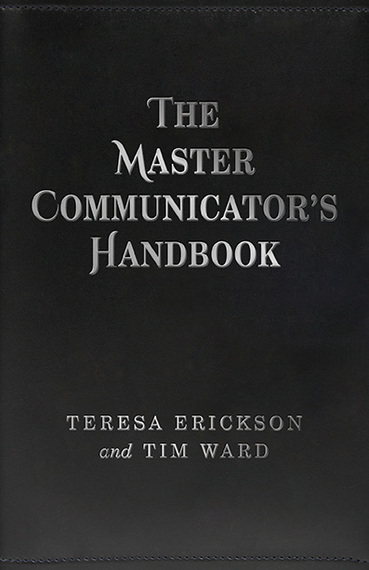(Written together with Teresa Erickson)
We are two former journalists (and co-authors of The Master Communicator's Handbook) who for twenty years have been teaching leaders and experts how to give good interviews. Here are 13 things you should never say in a media interview. If you do say them, journalists will likely use them in ways that will make you - and your organization - look bad. Instead, follow our advice and stay out of trouble:
1. "No comment."
(This makes you seem as if you've got something to hide).
2." What I just said...that's off the record!"
(Interview rules about "off the record" are clear here: you must have a journalist's agreement not to use a quote before you say it).
3."The only problem we have is a PR problem."
(Nobody believes that. Don't ever mention your PR in an interview. It makes people think you care more about perception than the real issue).
4. "We're not all liars here!"
(Sounds defensive and creates the opposite impression in the audience's mind. Don't say what you're not; say what you are).
5. "I don't like talking to the media. The media always gets these things wrong."
(Don't insult journalists or their profession).
6. "Let me 'dumb this down' for you."
(Don't insult the journalist's or audience's intelligence. In an interview it's your job to simplify).
7."Incompetent? I wouldn't agree that we are incompetent..."
(Don't let journalists put words in your mouth; don't repeat the negative words they use in their questions).
8. "This is really the government's fault."
(Don't blame others in an interview. instead, talk about solutions to the problem that's been raised).
9. "Trust us, we know exactly what we are doing."
(Sounds arrogant; this makes the journalist want to attack you).
10. "This is a tough job. That's why there aren't so many women working here."
(Avoid politically incorrect statements).
11. "I'm a good person, really!"
(That's a value judgment. It's unconvincing to those who don't know you. Instead, provide the facts that demonstrate you are a "good" person).
12. "Just speaking personally, and not as a company spokesperson, the real problem is our board of directors..."
(In an interview you are always speaking as a representative of your organization).
13. "Hypothetically, if we were caught in a scandal..."
(Don't speculate about a "what if" scenarios; these may be misinterpreted as fact).
For more on how to become a great communicator, please pick up a copy of our new book, The Master Communicator's Handbook.

Teresa Erickson and Tim Ward are the owners of Intermedia Communications Training, a global communications consulting firm based in Washington D.C.
